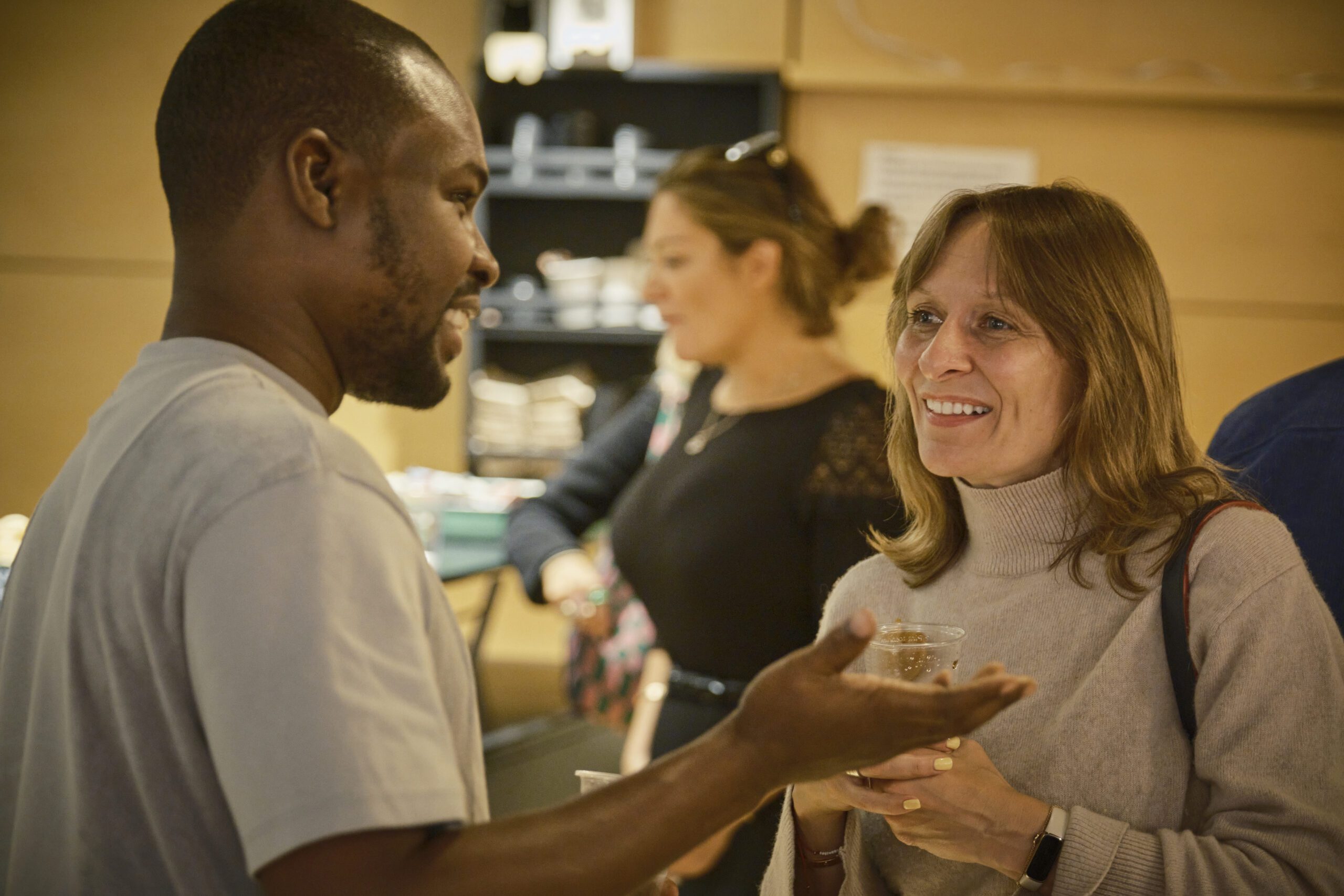Tips to establish a healthy working relationship with your agent.
There’s nothing worse than an apathetic actor sitting at home waiting for the phone to ring and subsequently blaming the world for their shortcomings. If you are constantly out at classes or on set, you’ll be proving that you’re employable and hardworking.
Agents are a source of consistency in an ever-changing industry. We hop from job to job employer to employer, colleagues to colleagues, but one of the only constants are our agents.
My agents have seen me at the extremes of emotion – absolute devastation on hearing that I didn’t get that job we were gunning for and pure elation on news of job offers and successes. The relationship with our agents is like a marriage, and (so I’ve heard) marriages are about compromise and understanding. It’s not often we sit back and think about what we can do to keep the relationships in our life healthy, but I have a few ideas of how we can do that with our agents…
1. Communicate, but don’t annoy
So many friends of mine are terrified of talking to their agents. Scared of asking them questions or flagging issues they might have on certain jobs. They fear that their agents are too busy to have time for them, so they stay silent, waiting for the phone to ring.
I’m very lucky in that my relationship with my agents is an open book. They’re always there at the end of the phone for a chat, which is how things should be in my opinion. Now, I say this cautiously because sometimes our desire to talk to them isn’t actually about sorting anything out or desperately needing their guidance. Sometimes it’s just us being needy – trying to make sure they haven’t forgotten us. And I think it’s important to recognise the difference between the two and filter our communication accordingly. Chances are, they do remember you and are doing loads of work which you aren’t aware of, so chill out.
2. Keep Working and Learning
Get out and do some short films. Whether it’s with your friends or students or even on your own, keeping yourself busy will only help you in the long run and it also shows your agents that you’re proactive and serious about getting to work. There’s nothing worse than an apathetic actor sitting at home waiting for the phone to ring and subsequently blaming the world for their shortcomings. If you are constantly out at classes or on set, you’ll be proving that you’re employable and hardworking. You’ll also be filling your tool belt (yes, tool belt) with skills which will make you more employable.
If your agent has spent weeks courting an audition for you and when they call, you’re not available for that audition, that doesn’t just make you look bad it makes them look bad too.
3. Keep Your Materials in Check
You’ll make your agent’s job way easier if you give them materials to prove how brilliant you are. While they’re putting you up for jobs and fighting to get you in the room, use that time to get yourself some great headshots, edit your showreel and get your voice reel done. All of these things can be expensive, but in my opinion, it’s really worth the investment to ensure you’re in the best position possible to work. I’ve had many times where I’ve asked my photography student friends to do my headshots for me and it always just leads to slightly awkward conversations with agents around what a professional standard is and how important it is to just do it properly. So look for a headshot photographer who knows what this is, and can help you get the result you need to be as employable as possible.
4. Keep Them Involved
There are occasions when we get jobs on our own. Whether it’s a direct offer or someone’s seen you in something and reached out without your agent having to put you up for it or you’ve been networking hard. It can be a great thing and can feel very rewarding. But some people are tempted to then claim that success as their own and cut agents out of the process. I’d say always give your agents commission. Even if they didn’t get you this particular job, they’ve probably been working their butts off the rest of the time getting you in the room (or, trying to), for other jobs, so to attempt not to give them commission seems kind of unfair. Always bring your agents in if you have a job offer and let them sort out the deal and invoicing as the project moves forward. They’re going to be able to negotiate you the best terms, too, so they will be incredibly helpful for securing the work in the best possible way.
5. Be Available
We all need to live our lives. It’s so important to take holidays, go to festivals and have a life outside of acting. However, it’s crucial for this not to create an unnecessary hindrance to our ability to work. Being away constantly or being completely inflexible when it comes to auditions can create crossed wires. If your agent has spent weeks courting an audition for you and when they call, you’re not available for that audition, that doesn’t just make you look bad it makes them look bad too. It means having to go back to casting and pull you from the project or beg for a different slot which sometimes just isn’t possible. The best way to avoid this is to communicate. Always give your availabilities to your agents with as much notice as possible, and if possible, try to avoid taking long holidays at extremely busy times of year.
6. See Them
Most agent/client relationships are predominantly e-mail and phone based. Setting up meetings and auditions, negotiating deals and dates and keeping on top of your marketing materials. It can be easy to forget that your agents are human beings; that there is someone behind that desk! I think the best way to remind yourself of this is to actually spend some time with them face to face. Go for a cup of coffee or offer to take them for lunch. Not only will you get a chance to genuinely connect with them, but physically being in front of them means they’ll be reminded of your characteristics and your look – ensuring your put up for the right kind of roles. It’s also nice to be able to talk about things other than the industry in a non-work-related space. And also, it’s important to actually like the people you’re working with!
7. Be Honest but Be Grateful
There are some jobs we just aren’t keen on going in for. Perhaps we’ve worked with the director before and we aren’t keen to do so again. Or the script simply isn’t something we respond to. Taking on a job can be a big commitment and it’s so important that we’re 100% in, otherwise, it can take its toll on everyone. Communicate this to your agent. But don’t be a diva. Make sure they understand how grateful you are for getting you that opportunity because chances are it wasn’t easy. Also, make these things clear as early on as possible. Don’t wait until they’ve already started negotiating a deal or when you’re down to the last two for the role. Try and make this clear at the very first conversation so nobody’s time is wasted!
To sum up, the main things to remember could literally be taken out of a marriage self-help book. Empathy, communication, honesty and gratitude. Once you’ve mastered these things with your relationship with your agent be sure to roll those things out across the other relationships in your life and see what a difference it makes!
We have more advice on agents, including more tips to build a better relationship with your agent, information about how to find an agent, and how to leave your agent if things aren’t working out. If you’re Ireland-based, you may find this interview with agent Jonathan Shankey about how to get an agent in Ireland a useful read.
 Matthew Jacobs Morgan is an actor and filmmaker from London. His credits as an actor include Our Town (Almeida Theatre), Tommy (New Wolsey) and the TV series Cuffs, Wasted, Love Nina, Midsomer Murders and upcoming C4 Drama Pure. He has numerous TV series and films in development including Dylan & Gracie which is under option at Tiger Aspect and Vamping which is being developed on 4Screenwriting.
Matthew Jacobs Morgan is an actor and filmmaker from London. His credits as an actor include Our Town (Almeida Theatre), Tommy (New Wolsey) and the TV series Cuffs, Wasted, Love Nina, Midsomer Murders and upcoming C4 Drama Pure. He has numerous TV series and films in development including Dylan & Gracie which is under option at Tiger Aspect and Vamping which is being developed on 4Screenwriting.
Image credit: Michael Shelford



















